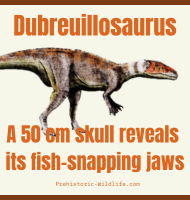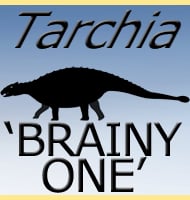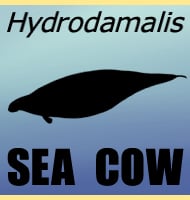In Depth
Punatitan is a genus of titanosaurian dinosaur that lived in South America during the late Cretaceous. The genus name of this dinosaur is a reference to the thin air high up in the Andes mountain range where the holotype fossils of Punatitan were first discovered.
Punatitan was named alongside the genus Bravasarus in the same paper in 2020. Further reading
- Two Late Cretaceous sauropods reveal titanosaurian dispersal across South America. - Communications Biology. 3 (1). - E. Mart�n Hechenleitner, L�a Leuzinger, Agust�n G. Martinelli, Sebasti�n Rocher, Lucas E. Fiorelli, Jerem�as R. A. Taborda & Leonardo Salgado - 2020.









